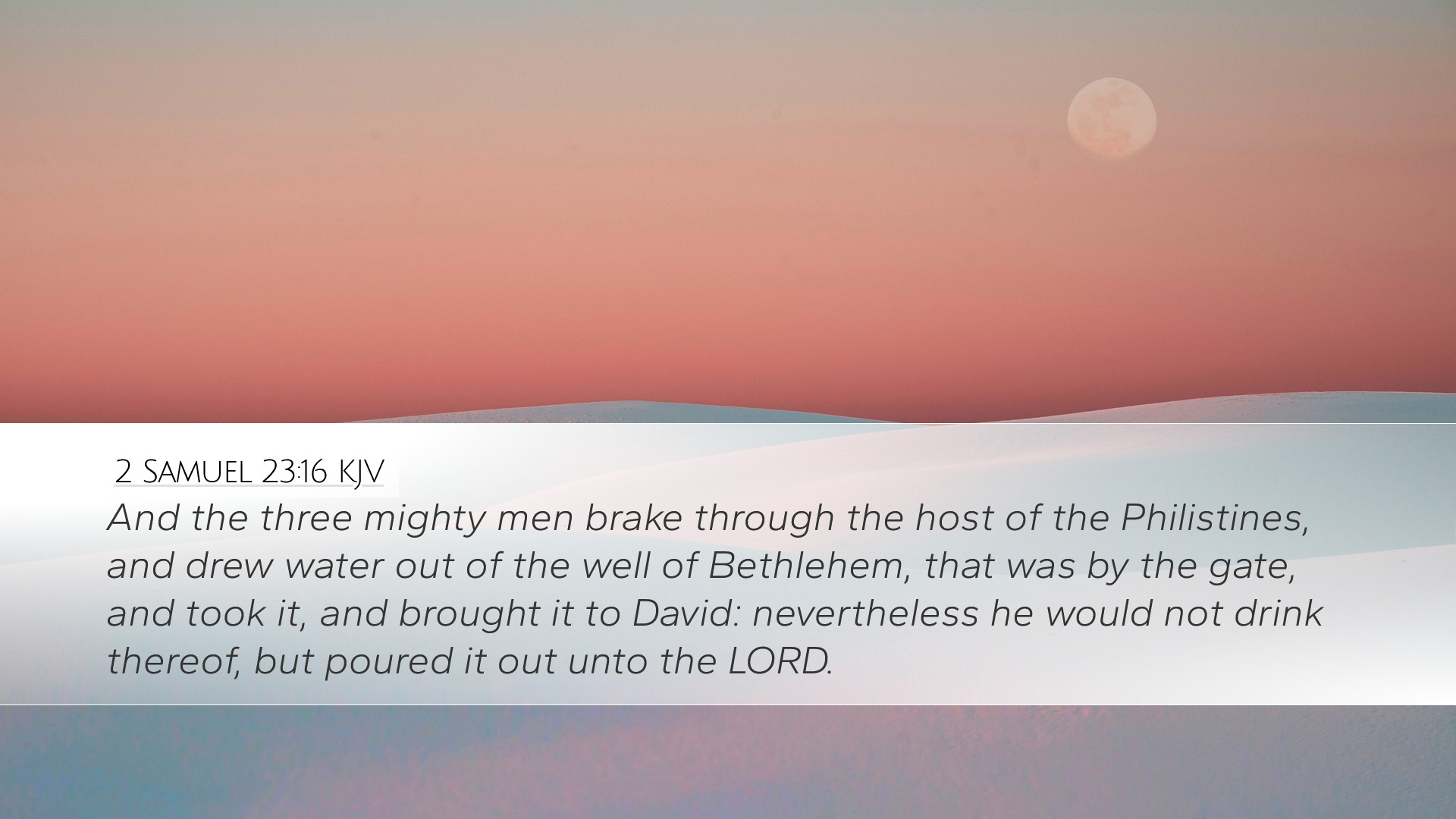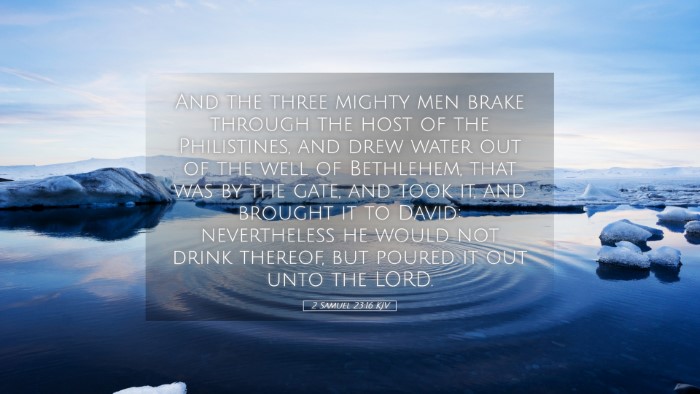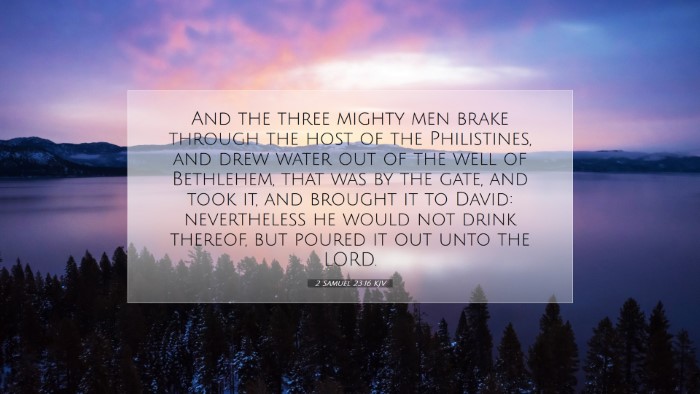Commentary on 2 Samuel 23:16
Verse: "And the three mighty men brake through the host of the Philistines, and drew water out of the well of Bethlehem, that was by the gate, and took it, and brought it to David: nevertheless he would not drink thereof, but poured it out unto the Lord."
Introduction
This passage reflects an act of great bravery and loyalty displayed by David's mighty men. Here we see an illustration of the deep commitment these men had to their leader, as well as the reverence David had for the Lord. This commentary seeks to explore the significance of these actions, drawing insights from notable public domain commentaries.
Context and Background
2 Samuel 23:16 occurs during a time of conflict between Israel and the Philistines, where King David is not only leading but also facing formidable challenges. This verse highlights the valor of three of David's elite warriors, who defy the odds to bring their king a drink of water from Bethlehem, representing both physical and spiritual sustenance. The choice David makes regarding this water demonstrates his commitment to God over personal desire.
Exegesis of the Verse
The act of breaking through the host of the Philistines illustrates the danger these men faced. Matthew Henry notes that this act was not just a simple fetch of water but a significant risk that underscored their loyalty to David. Their bravery is contrasted with David's humility and his recognition of God's ultimate authority.
The Mighty Men
Henry emphasizes the valor of these "mighty men," indicating that they were not merely soldiers but dedicated followers willing to risk their lives for their leader. Adam Clarke reminds readers of the symbolism behind their actions—water being an essential element of life, signifies both sustenance and refreshment in a time of warfare.
The Significance of the Water
Albert Barnes highlights the importance of the well from which the water was drawn. The well of Bethlehem was a source of life for the city, much like the Holy Spirit is a source of life for believers. This historical context enriches the understanding of the lengths to which these men went to serve David, drawing parallels between their actions and the service of Christ to his followers.
David's Response
David's decision not to drink the water but to pour it out as an offering to the Lord speaks volumes about his leadership and spiritual integrity. As noted by Clarke, this act of pouring out the water is akin to a drink offering, showing that David held the lives and actions of his men sacred. To partake of the water would be to disregard the sacrifice they made.
Symbolism of the Offering
The act of offering the water to God signifies that the greatest honor belongs to Him, rather than to earthly positions or desires. Henry comments that David was teaching his men and the nation that devotion to God must surpass even personal need or desire. This exemplifies the nature of true leadership—ensuring that all glory is given to God above all else.
Theological Insights
This story communicates a deep theological truth about sacrifice and service. The actions of these mighty men can be seen as a foreshadowing of Christ—the ultimate servant leader who would lay down His life for His followers. As Barnes suggests, their bravery and dedication reflect the kind of love that believers are called to exhibit in their own lives.
Lessons for Modern Believers
- Valiant Service: The commitment of David’s men reminds believers of the importance of sacrificial service, both to God and to one another.
- Prioritizing God: Like David, modern believers are called to place God first in their lives, recognizing that even our most valued needs should be offered unto Him.
- Community and Leadership: The relationship displayed between David and his warriors serves as a model for godly leadership—a leader who honors and respects the sacrifices of their followers.
Conclusion
2 Samuel 23:16 serves as a profound testimony to the themes of loyalty, sacrifice, and spiritual integrity. The mighty men’s willingness to risk their lives for a mere drink of water exemplifies extraordinary devotion, while David's response illustrates the principle of worship and reverence for God. These elements combined offer rich insights for pastors, theologians, and students alike, inviting all believers to reflect on their own acts of service and the heart behind those actions.
Call to Reflection
As those who follow Christ continued to read and interpret this passage, it compels them to examine their own loyalties and the sacrifices they make in their spiritual journeys. It beckons all to pour out their lives, talents, and sacrifices as offerings unto the Lord, who sees all actions and intentions.


